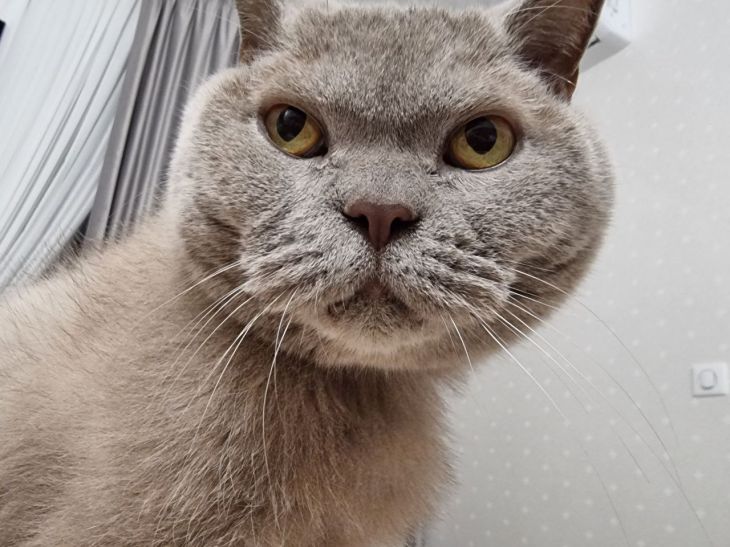- Cats constantly fall on their paws
- Cats love milk
- Cats should not be around pregnant women.
- When a cat loses its whiskers, it loses its balance.
- Is a cat considered a traitor?
- Does a cat get fat after castration?
- Cats don't get along with dogs
- Are Cats Dangerous for Children?
- Cat training
- Cats can see in the dark
10 Things About Cats: True or Myth
Cats constantly fall on their paws and are considered great traitors. Here are things about cats that people did not know.
Cats constantly fall on their paws, are considered cunning, animals should not be present near pregnant women, and love to drink milk.
There are some myths about cats. Thanks to some scientists, it has become clear from the behavior of animals that the true nature of cats goes far beyond what people are used to knowing.
Cats are animals that love independence, but even in this regard there are myths that should be dispelled.
Here are 10 things about cats that will help you figure out what's true and what's a myth.

Cats constantly fall on their paws
No, cats do not always fall on their paws, it depends on the height from which the animals fall, if the cat manages to turn over, it will land on its paws, otherwise - if the fall is not great - they will not have time to turn over, the fall occurs on the body.
A kitten develops this ability only after 40 days, it is an instinctive behavior, but it is important to learn for this
Cats love milk
This is not true, cats do not have lactose, the enzyme responsible for digesting the sugar found in milk. This enzyme is present in newborns but disappears after weaning, so feeding milk to an adult cat will cause gastrointestinal problems, cats are carnivores.
Cats should not be around pregnant women.
This is not true, or rather not so. Toxoplasmosis is a disease caused by an intracellular parasite: Toxoplasma gondii.
The disease, which is common in pregnant women, is rare in cats, and some studies have shown a low likelihood of infection from the feces of an infected cat, but in rare cases, infection occurs through direct contact with infected feces rather than from the animal.
Infection often occurs through unwashed fruits or vegetables, undercooked meat, or contaminated soil.
When a cat loses its whiskers, it loses its balance.
True, Le vibrisse - tactile hairs that are located in the facial area, thicker and longer than regular hair, the main feature of the moustache is that it is internally connected to an arbitrary control muscle and nerve receptors.
In this way, cats sense small changes in drafts that come from nearby objects.
Whiskers are important in the orientation of the cat, as are the other senses. Balance in a cat is a complex system that consists of muscular, tactile and visual systems, if the cat loses vibrissae - whiskers, the animal will have to rely much more on other senses.
Is a cat considered a traitor?
No, betrayal does not characterize the behavior of a cat. The cat is considered a lonely, shy and sometimes aggressive animal, but often there are animals that are affectionate and sociable.
A cat does not need to remain in society to survive, as a dog does, but the pet is equally capable of giving love to those who give love in return.
Does a cat get fat after castration?
Metabolism in cats changes with castration, but obesity is not considered a consequence: if after castration the animal constantly moves, plays and eats properly, it will not get fat.
Cats don't get along with dogs
It is not true that if two animals live together during socialization, cats are able to identify dogs as a friendly species.
Are Cats Dangerous for Children?
Cats are no more or less dangerous than other pets, but when leaving an animal with a child, it is important to make sure that the pet has already had contact with infants and children.
Most recommend not leaving a cat alone with a child and being wary of the cat's hunting behavior, which is triggered when things move in front of the animal, such as a child's hands and feet.
Cat training
Cats are trained and disciplined, the problem that a person faces is the “consistency” of the animal when the owner begins training.
A dog, due to its sociable nature, will be with a person every time, and specifically at that moment when the owner gives attention to the pet, with a cat it is more difficult, since the animal often likes to isolate itself.
Cats can see in the dark
It is true, cats can see in the dark - “Twilight” hunters. They are able to adapt to extreme lighting conditions and even when there is no light.
Cats see 6 times better than humans at night due to the anatomy and physiology of the retina, when there is no light, they cannot see, but are able to lead and hunt through their whiskers and sense of hearing.
Previously, we told you how to wash beetroot juice off a cutting board.
